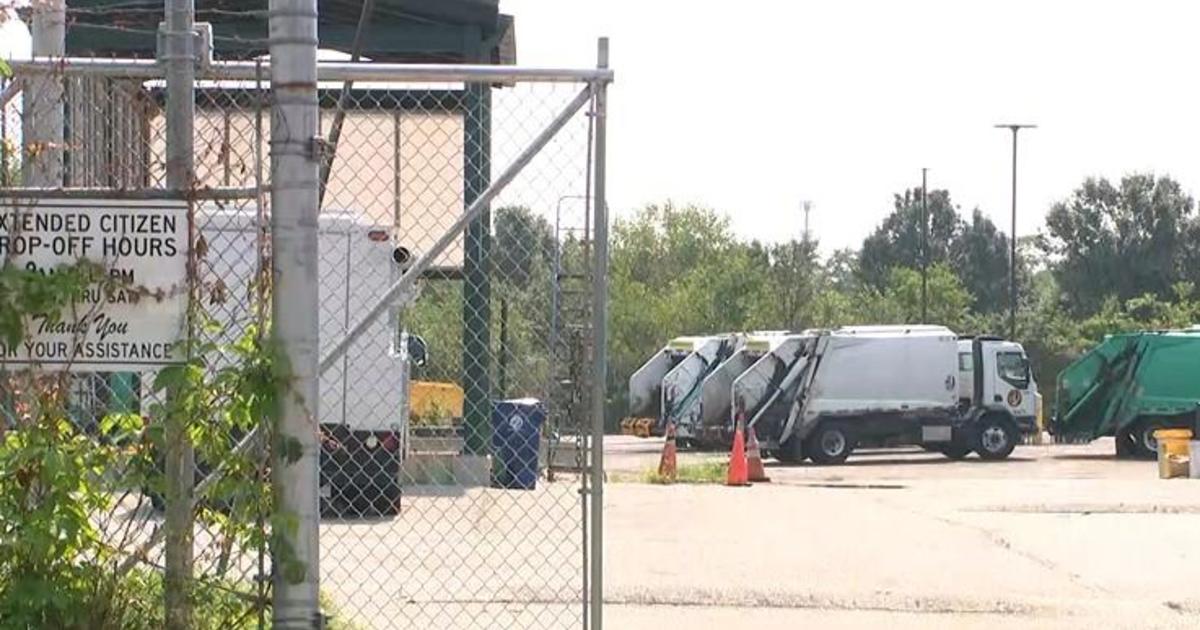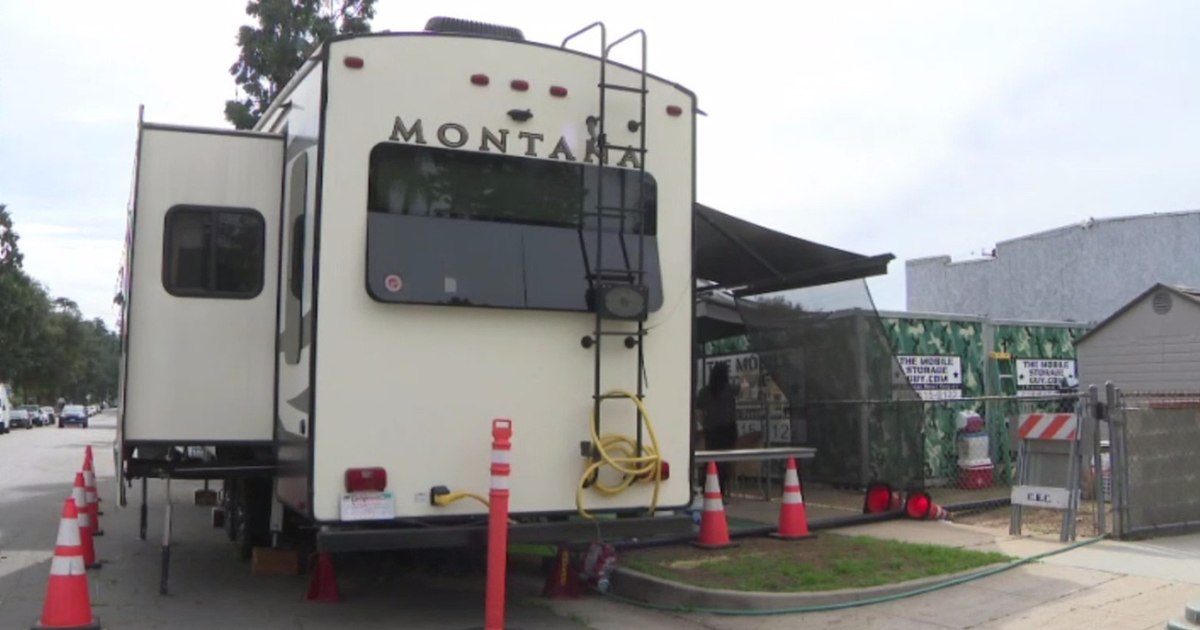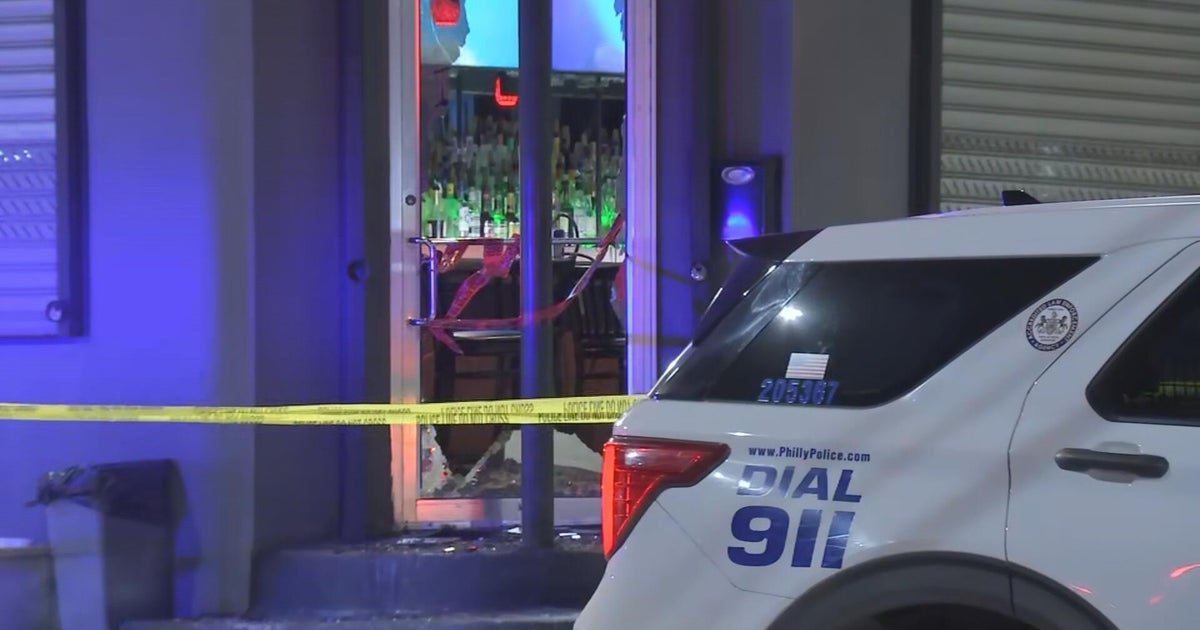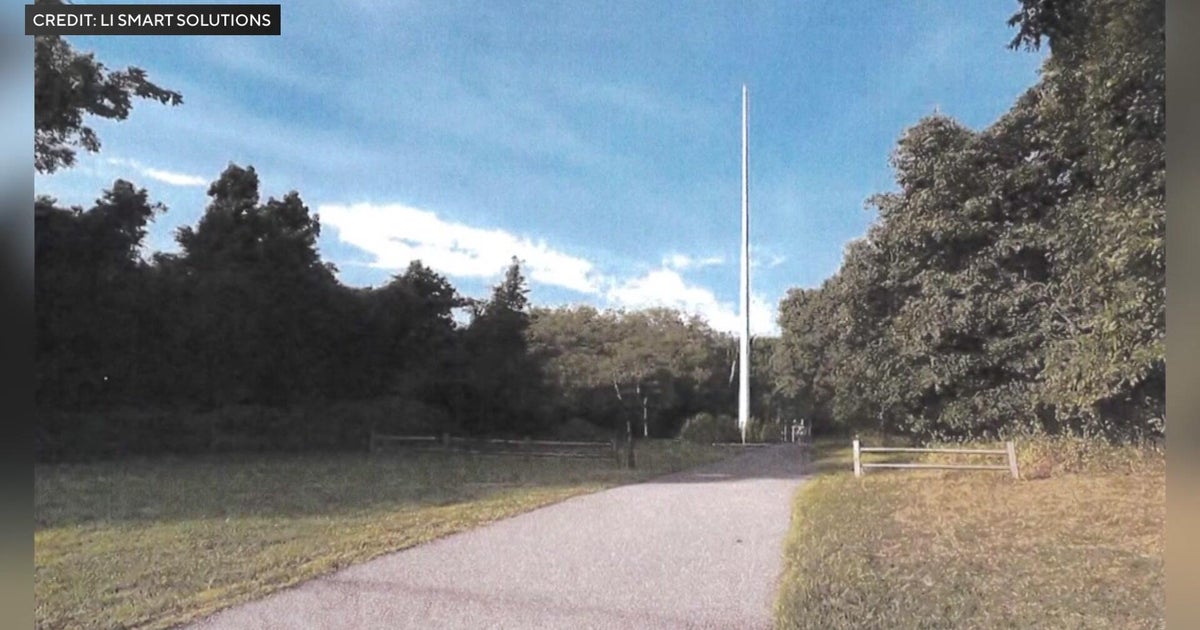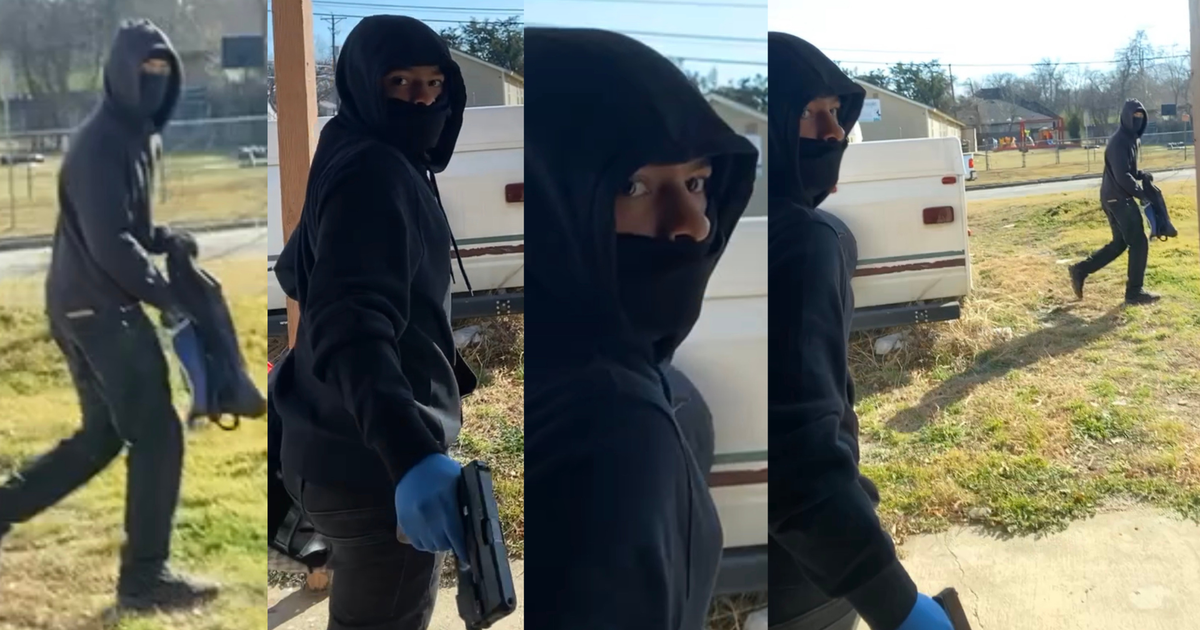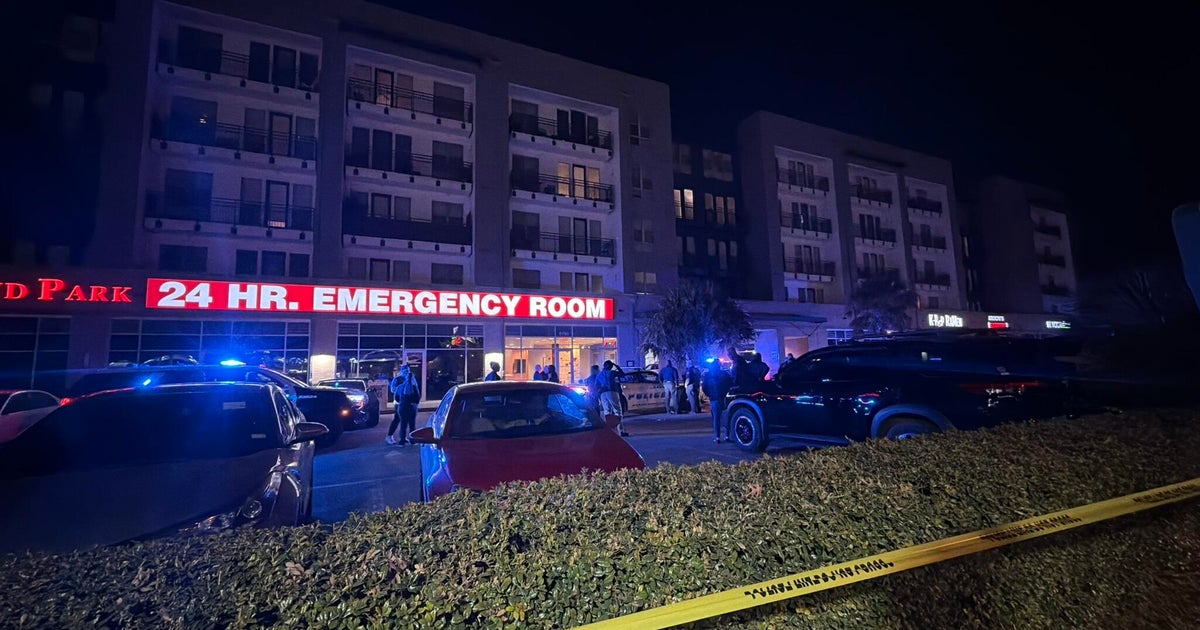CBS New York investigation finds NYCHA contests lead paint violations far more often than other landlords
NEW YORK -- A CBS New York investigation finds one landlord that contests the health department's lead paint violations nearly as often as all the other landlords in the city combined -- NYCHA.
Investigative reporter Tim McNicholas exposes how the housing authority is not only contesting violations, but getting violations canceled more often than private landlords.
Ikasha Whitaker rented a toxic home, something she learned the hard way in April when her 3-year-old daughter Afiyah's lead levels were 31 times the average amount for a child.
"The hardest part was in the hospital, watching them hook her up to machines and trying to give her the medication. She was so scared," Whitaker said.
Back in the spring, Whitaker showed us the cracked paint in her apartment at NYCHA's East River Houses where she says Afiyah has lived her whole life. She believes Afiyah accidentally ingested lead paint chips or dust, which can cause brain damage and stunted development in children.
After Afiyah's blood test, the city's Department of Health and Mental Hygiene tested the home, found 22 lead-based paint hazards and ordered NYCHA to fix them.
"What do you make of the fact that they had never found any violations in here before?" McNicholas asked.
"It didn't happen overnight," Whitaker said.
- Related story: New York City Council considering new lead paint laws with thousands of kids still showing unsafe lead levels every year
According to city records obtained by CBS New York, the same day NYCHA got the violation notice, NYCHA informed the health department they planned on contesting 21 of the 22 violations, which were found with a kind of testing called XRF, using a device that can detect lead through multiple layers of paint.
After they got the violations, NYCHA had a different kind of test done at the apartment -- a paint chip analysis, which showed significantly different results from health department's test.
"They were just scraping the paint chips off. They tested. They were saying, oh, nope, this is inconclusive, there's no lead here, there's no lead. We found lead here, but there's no lead here," Whitaker said.
Both XRF and paint chip analysis are considered reliable by experts, but neither one is perfect.
Based on that paint chip analysis, the health department agreed to dismiss 16 of the 22 violations -- all but six.
The decision puzzled Whitaker, especially since her attorney, Reuven Frankel, had another XRF test done that showed results closer to the health department's original test.
"For some reason, when the landlord is another city agency, they are willing to rescind their own violations in favor of the landlord," Frankel said.
A health department spokesperson tells CBS New York they handle NYCHA cases the same as they do for other landlords, but we filed a public records request and found in the last five and a half years, the health department has dismissed lead paint violations more often for NYCHA than for private landlords.
When private landlords contested the health department's orders to fix lead paint hazards, the health department agreed to either reduce the number of violations for the landlord or remove them altogether in 60% of those orders. When NYCHA was the one contesting, violations were at least reduced 74% of the time.
And NYCHA contested the orders, known formally as Commissioners' Orders to Abate, 209 times. All the private landlords in the city combined filed 216 contestations. During that timeframe, the health department sent NYCHA a total of 249 orders to fix lead paint hazards, meaning NYCHA challenged 84% of them.
"It's clear that the kids come last here. There's no reason why, in Ms. Whitaker's case, that NYCHA would have done this," Frankel said.
We showed both NYCHA's results from the Whitaker home and the health department's results to Sean Stratton, a certified lead inspector and Ph.D. candidate at the Rutgers School of Public Health, and asked which one he'd rely on.
"Because both XRF and paint chip analysis are approved methodologies, I would side on the more cautious approach and take the higher result to be the most protected for children," he said.
"The XRF one?" McNicholas asked.
"Yes," Stratton said.
NYCHA put the Whitaker family in a hotel in late May and repainted the apartment but only removed paint in the six spots where the violations stuck.
The health department tells CBS New York "XRF technology is accurate" but it may sometimes read through paint and pick up an underlying metal surface. They say paint chip sampling, like the kind NYCHA does when they contest violations, "can be more precise..." than XRF "...when done correctly."
Whitaker's not convinced it was.
"I don't trust it," she said.
Even after the repainting, she can still see the red stamps where the health department marked some of their original 22 violations. They're reminders, she says, of her fear that some of the hazards were not fixed.
Three weeks after they returned home, Afiyah's blood test showed her lead levels are lower than before but still dangerously high.
In 2018, The New York Times reported that the then-interim chair of NYCHA said the agency was going to stop its practice of contesting lead paint violations.
"Whatever the merits of a particular case, or whatever is involved, we're accepting whatever the finding of the Health Department is," the Times quoted him as saying.
NYCHA sent CBS New York the following statement:
"The contestation process is the regulatorily established process to respond to a lead COTA because it triggers a more in-depth, science-based analysis to understand exactly where lead is present and on certain substrates, like metal. This is used to identify the confirmed locations of lead-based paint, as opposed to simply paint that is on a surface that is, for instance, metal."
They say they can't comment on Whitaker's case because she's suing and, like the health department, they would not meet us for an interview.

